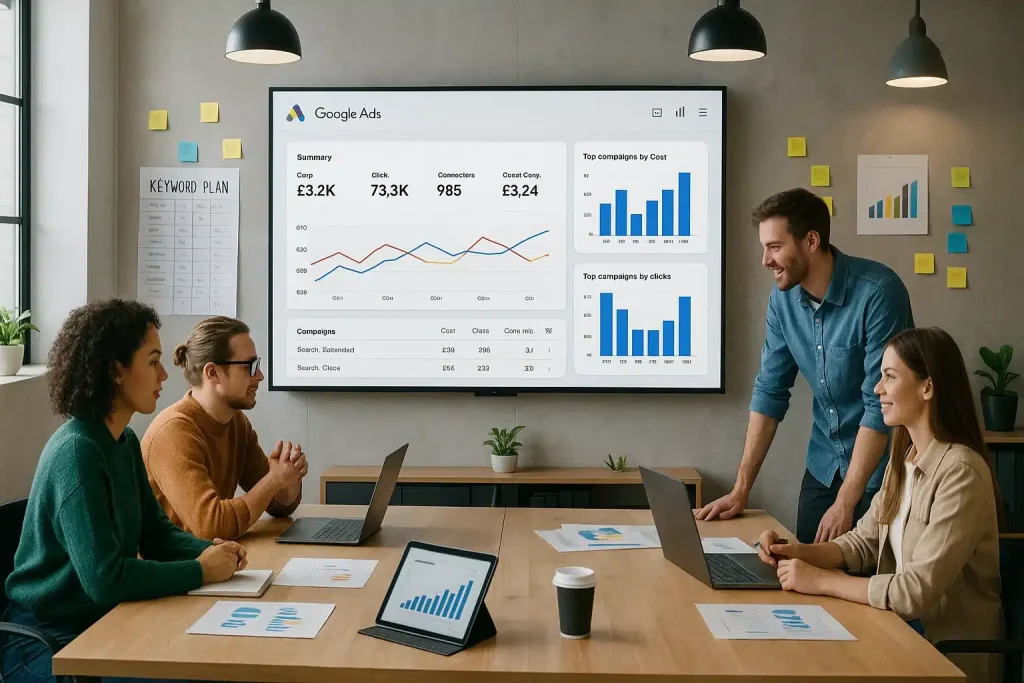Google Ads is one of the most powerful ways to promote your business online. Whether you’re offering local services, selling products, or just trying to get more eyes on your brand, this platform puts you right in front of people who are actively searching. However as effective as it can be, Google Ads is also easy to misuse. Without a clear understanding of how it works, costs can quickly spiral without much return. This blog will walk you through the essentials, answer the most common questions and help you decide whether it’s right for you in 2025.

What Are Google Ads and How Do They Work?
Google Ads is Google’s paid advertising platform. It allows you to place your website above organic search results, this is where SEO comes in, whenever someone types in a related query. These are the ads you see at the very top of the page with a small ‘sponsored’ tag.
Behind every Google search is a real-time auction. Each advertiser bids to show up for particular keywords, but Google doesn’t just choose the highest bidder. It also considers the quality of your ad and how useful your landing page is. This is why a small business with well-written ads and a strong offer can beat a large company with a bigger budget.
You only pay when someone clicks your ad, which is why it’s often referred to as PPC — pay-per-click. That makes it easy to track performance and tweak your campaigns as needed.
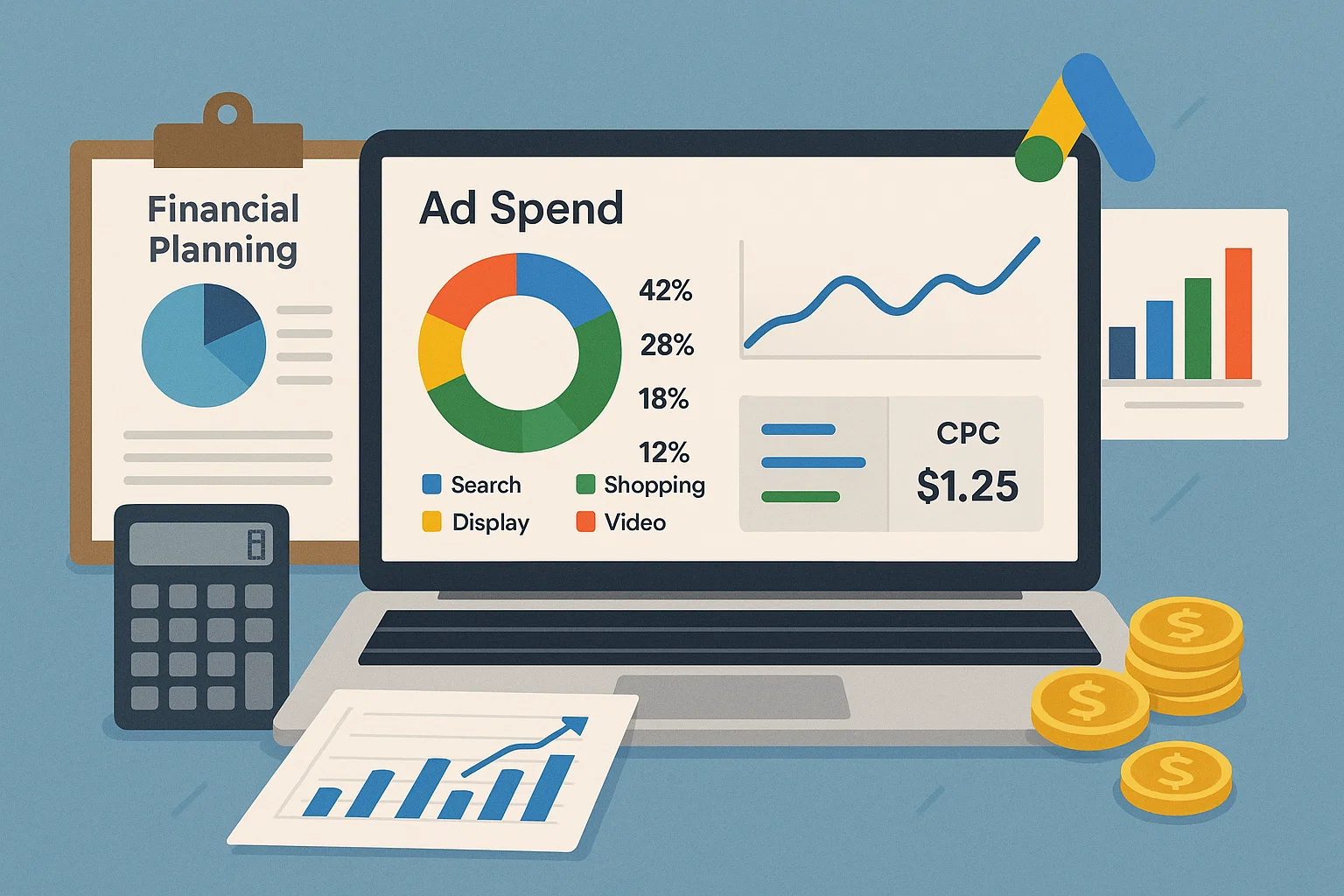
How Much Do Google Ads Cost in 2025?
One of the most common questions is how much Google Ads actually costs. Unfortunately, there’s no one-size-fits-all answer. Your spend depends on what industry you’re in, how competitive your keywords are and how well your campaigns are managed.
Some industries pay very little per click. Others, like insurance or legal services, may pay over £20 for a single click. That’s because the potential profit from one new customer is high, so competition is fierce. However most small businesses won’t be dealing with those extremes, for many trades, local services and eCommerce brands, cost-per-click averages between 50p and £3.
You control your spend by setting a daily budget, that can be as low or high as you like. You also decide how much you’re willing to bid for each keyword. Over time, the system helps optimise your spend based on performance.
Quality Score (Google’s way of rating your ad’s relevance) also affects your cost. Higher scores mean lower costs and better positions. So writing good ads and linking them to relevant landing pages can stretch your budget further.
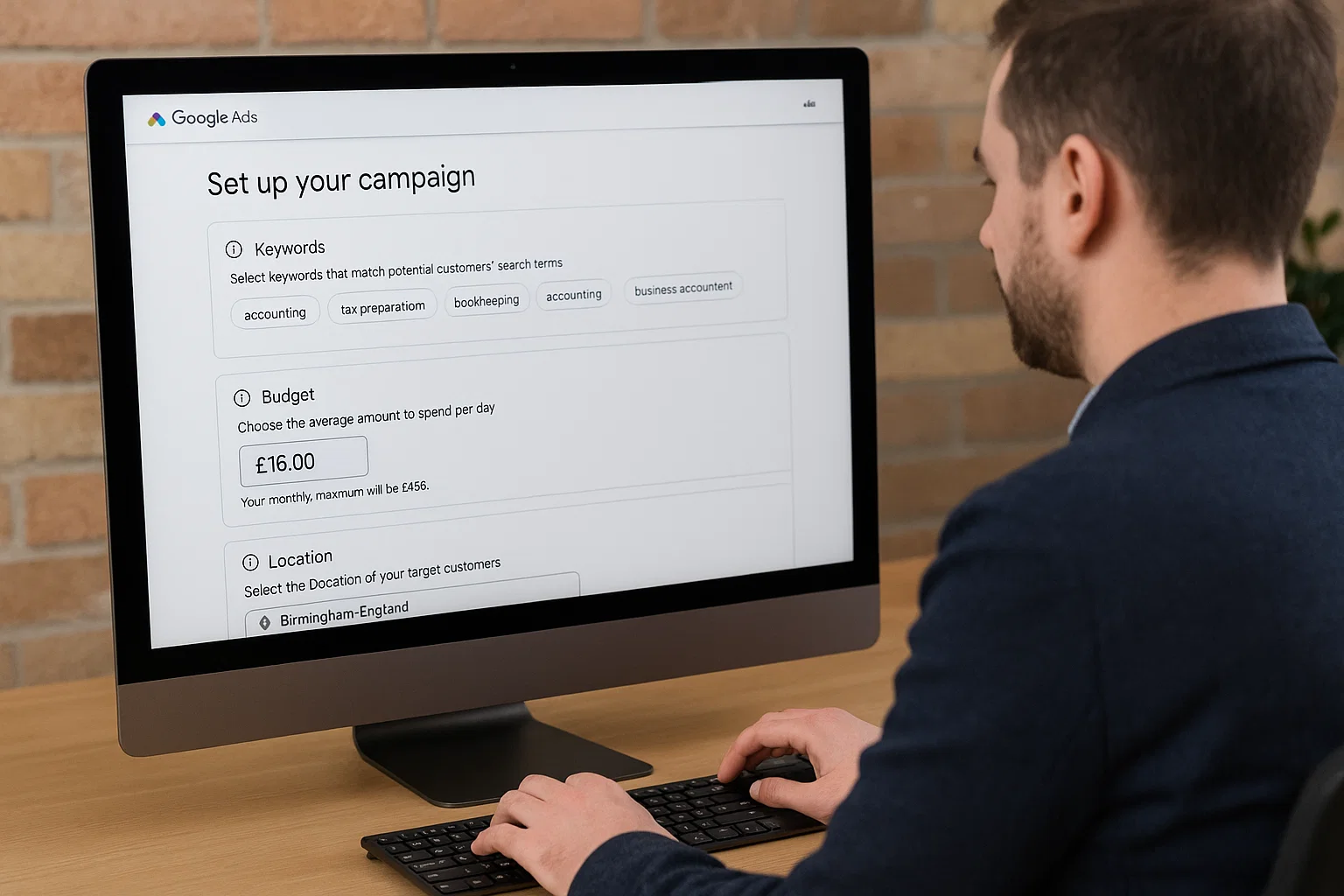
How to Advertise on Google Ads: Step-by-Step
Starting out with Google Ads might seem daunting, but it’s straightforward once you know the steps. First, you’ll need to create account access via ads.google.com. Make sure you’re logged into your selected Google account before you begin. If you’re switching devices or using private browsing windows, double-check that you’re using the correct profile. Your Google Ads email will be the main point of contact, so choose one you check regularly.
Once you’re in, you’ll be introduced to the Google Ads platform. This is the central hub where you can create campaigns, monitor spend and adjust your targeting. The interface has become much easier to navigate in recent years, especially for small business users.
You’ll begin by selecting your advertising goal. This could be more leads, more phone calls, or traffic to a landing page, from there you pick a campaign type. For most local businesses, a Search campaign is the best place to start.
Next set your daily budget, even £5 per day is enough to collect useful data. You’ll also choose your keywords, these are the phrases your customers are likely to type into Google. Tools like Keyword Planner or SEMrush can help with this.
Writing the ad comes next. Focus on your offer, what makes your business different and a clear call to action. After that, you’ll select your target area – this could be your town, your postcode, or even within a certain radius.
Once everything is set up, your ad goes live. You can start getting clicks and traffic in as little as a few hours.
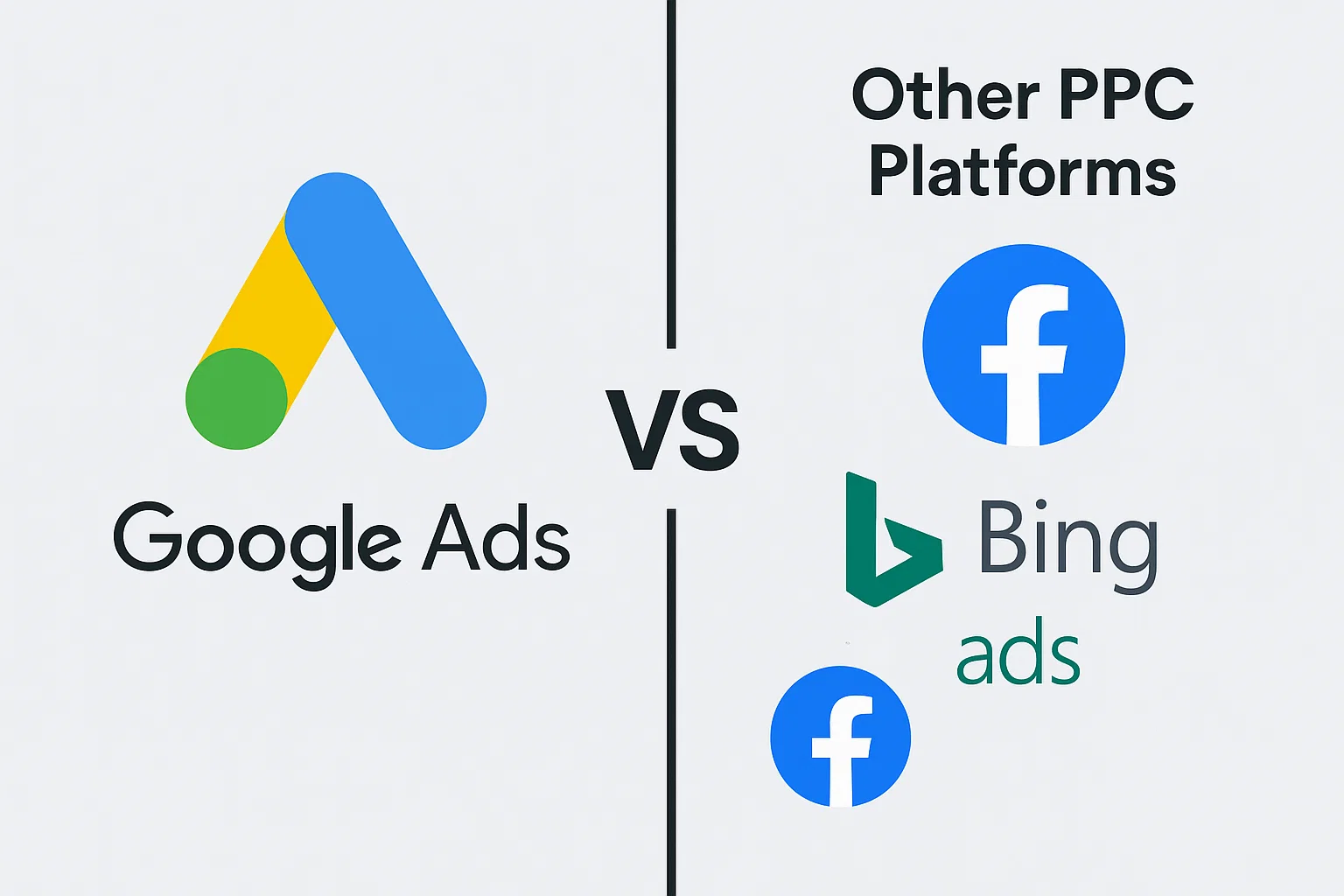
Google Ads vs PPC: What’s the Difference?
There’s often confusion around the terms Google Ads and PPC. In short, Google Ads is a specific platform. PPC, which stands for pay-per-click , is a type of online advertising.
That means Google Ads is a form of PPC, but not the only one. Other PPC platforms include Microsoft Ads (which run on Bing), as well as Facebook, Instagram and LinkedIn when they use cost-per-click pricing.
So when someone refers to a PPC campaign, they might be talking about Google Ads or they might mean another platform. If you hear “PPC” in a conversation, it’s always worth asking for clarification. In most cases, Google Ads is what people are referring to.
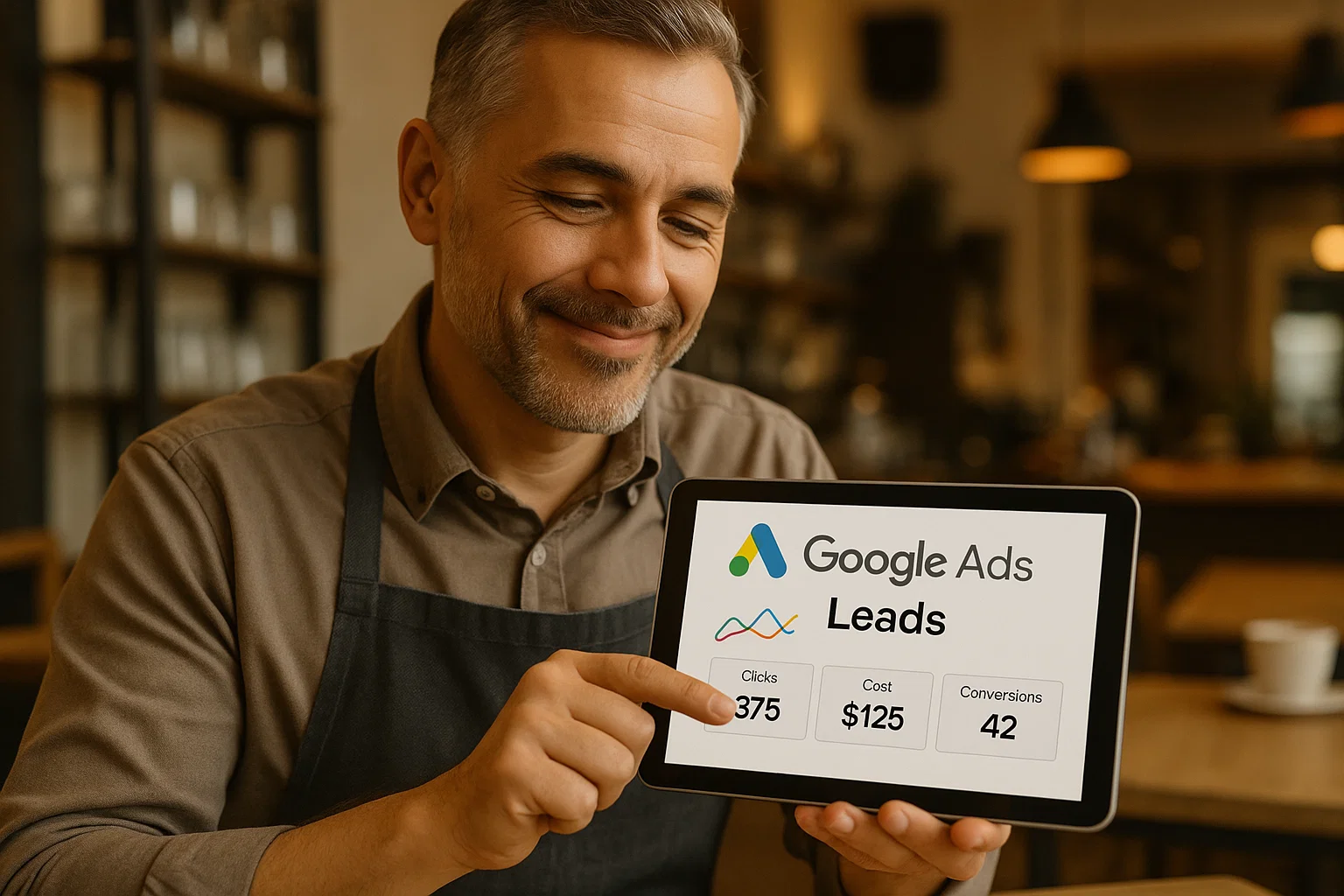
Is It Worth It for Small Businesses?
In many cases the answer is yes, Google Ads can be a fantastic tool for small businesses. It puts your offer in front of people who are actively searching for what you do, often at the exact moment they’re ready to buy.
The key to making it work is tracking results properly. You need to know what people are doing after they click your ad. Are they filling in a form, calling your number, or completing a purchase? This is where conversion tracking comes in. Without it, you’re flying blind.
Many business owners run ads without any tracking in place. They might see clicks but not know whether those clicks are turning into customers, that’s a quick way to burn through budget without results.
When you set things up correctly and focus on the right keywords, Google Ads can bring in a steady stream of leads or sales. It’s especially effective for local services where there’s less competition and high intent. To understand how paid ads like Google Ads stack up against organic marketing, check out our SEO vs PPC comparison for local businesses.
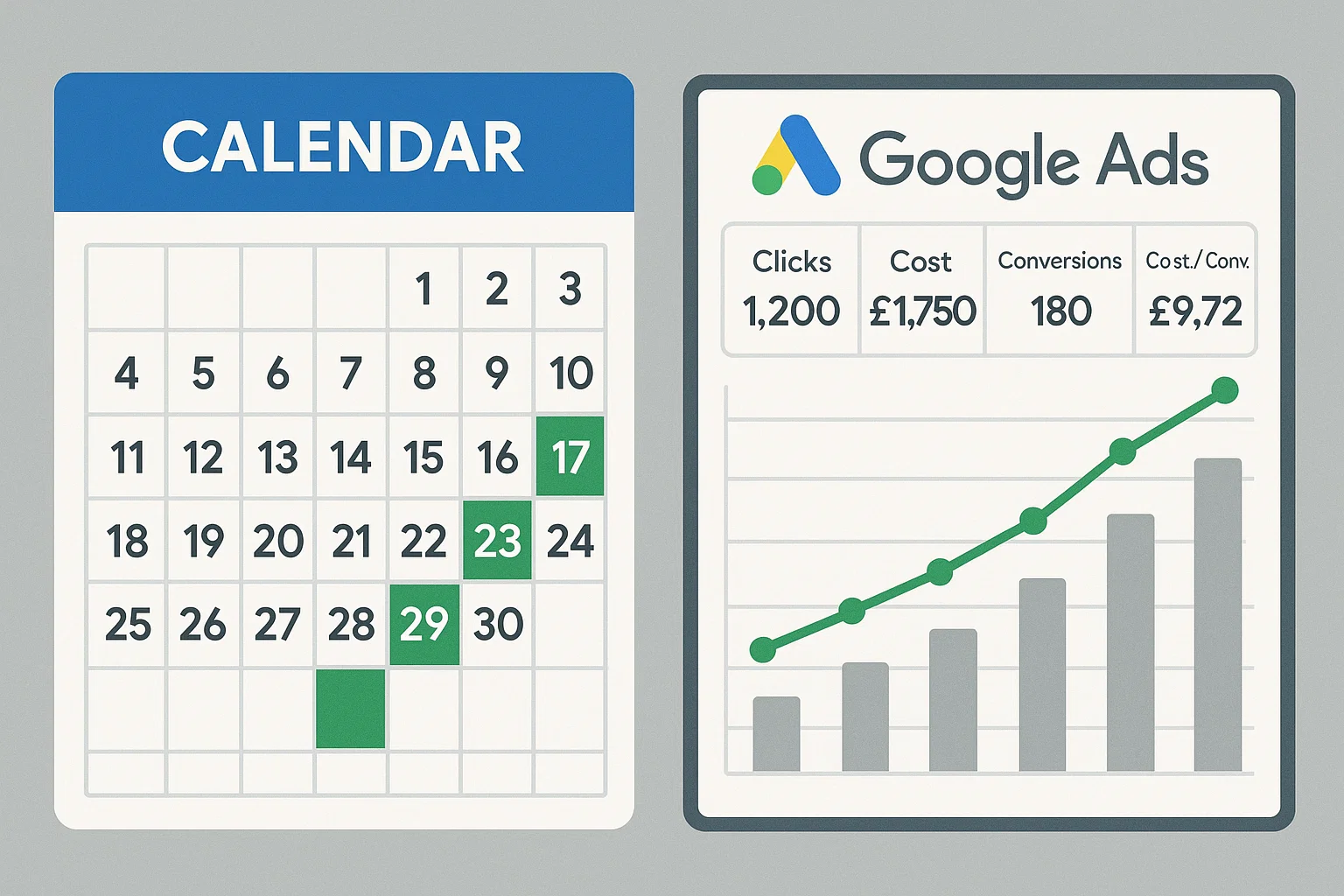
How Long Does It Take for Google Ads to Work?
One of the biggest advantages of Google Ads is how quickly you can get results. In theory, your ad can go live and start getting clicks within hours of launching.
It’s also important to know that getting real, consistent performance takes a bit longer. You’ll need time to test which keywords work best. You’ll want to write new versions of your ads, improve your landing pages and review which search terms are driving conversions.
Most businesses start to see clearer patterns after about two to four weeks. By that point, you’ll know what’s working and what’s wasting money.
If you’re using Performance Max campaigns, Google’s latest AI-powered campaign type, give it time. These campaigns spread your budget across Search, Display, YouTube, Maps and more. They use automation to test different audiences, placements and messages. They also need more data to optimise properly, so don’t rush to make changes too soon. Curious how this timeline compares to organic results? Here’s how long SEO really takes to deliver lasting visibility.
Let the system learn, especially in the first 7–10 days and after that, you can begin refining based on results.

Should You Run The Campaign Yourself or Hire Help?
Running your own campaigns is possible and many business owners do it. Google offers guided setup tools and video tutorials, which are helpful if you enjoy learning digital tools.
Bare in mind there’s a steep learning curve and writing good ads, choosing the right keywords, setting up conversion tracking and adjusting bids all take time. It’s easy to overspend or focus on the wrong areas.
Working with a Google Ads expert can save time and usually delivers better results. They’ll help avoid common mistakes, ensure your ads are optimised and set up proper tracking so you know what’s working.
If you decide to hire someone, make sure they’re transparent with their reporting. Ask to see results from past campaigns. Make sure they understand your business and can explain their strategy in plain English.
Ultimately, the decision comes down to time and confidence. If you’ve got the time to learn, managing your own campaigns can work. It’s more likely that you want faster, more reliable results, so bringing in help often pays off. If you’re unsure whether to handle campaigns yourself or get expert help, our blog on hiring a PPC agency vs going solo breaks down the pros, cons and real-world results of both approaches.
Thinking About Trying Google Ads?
Google Ads isn’t a magic wand, but when done right, it’s one of the most effective ways to grow your business online. You can reach people at the perfect moment…when they’re ready to take action!
We say start small, measure everything and give it time. If you get stuck or want someone to check your setup, feel free to reach out. Sometimes a few small changes are all it takes to turn clicks into customers and at Rank Kings that’s what we specialise in.
